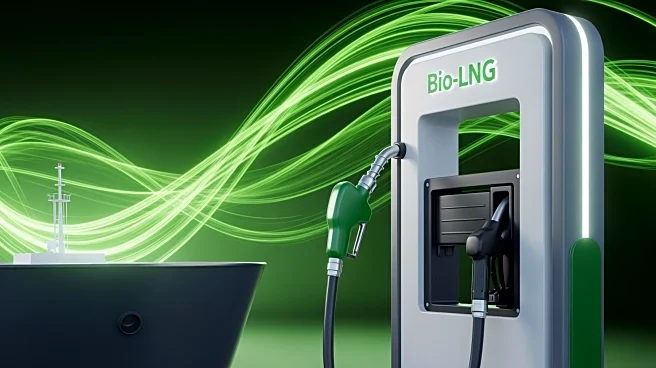What's Happening?
Anew Climate and Seaspan Energy have completed their first ship-to-ship loading of renewable liquefied natural gas (Bio-LNG) at the Port of Long Beach, California. This operation marks a significant step
in maritime decarbonization efforts on the North American West Coast. The Bio-LNG, produced from renewable natural gas sourced from a Morrow Energy facility, has a low carbon intensity of 7.74 grams of CO2e per megajoule. This successful loading operation serves as a proof-of-concept for the scalable deployment of Bio-LNG in commercial shipping, demonstrating its potential to reduce carbon emissions in the maritime industry.
Why It's Important?
The successful loading of Bio-LNG represents a critical advancement in the transition to lower-carbon marine fuels. As the maritime industry faces increasing pressure to reduce its carbon footprint, the adoption of renewable fuels like Bio-LNG could play a pivotal role in achieving sustainability goals. This development not only supports environmental objectives but also positions Anew Climate and Seaspan Energy as leaders in the emerging market for renewable marine fuels. The initiative could encourage other companies to explore similar solutions, potentially accelerating the industry's shift towards greener practices.
What's Next?
Following this successful operation, Anew Climate and Seaspan Energy are likely to continue expanding their Bio-LNG offerings. The companies may seek to establish additional partnerships and infrastructure to support the widespread adoption of Bio-LNG in maritime transport. As regulatory pressures and environmental concerns grow, the demand for sustainable fuel alternatives is expected to increase, potentially driving further innovation and investment in the sector.










